In today’s unpredictable world, securing your home against unexpected disasters is essential. One of the biggest threats to homeowners is the risk of fire damage. If a fire occurs, the financial and emotional impact can be overwhelming. This is where homeowners insurance becomes crucial, offering both protection and peace of mind.
Understanding Homeowners Insurance and Fire Damage
What exactly is homeowners insurance? Simply put, it’s a type of policy that protects your home and personal property from various risks, including fire damage. This insurance generally covers your dwelling, contents, liability, and even additional living expenses if you suffer a fire-related loss.
What is Homeowners Insurance?
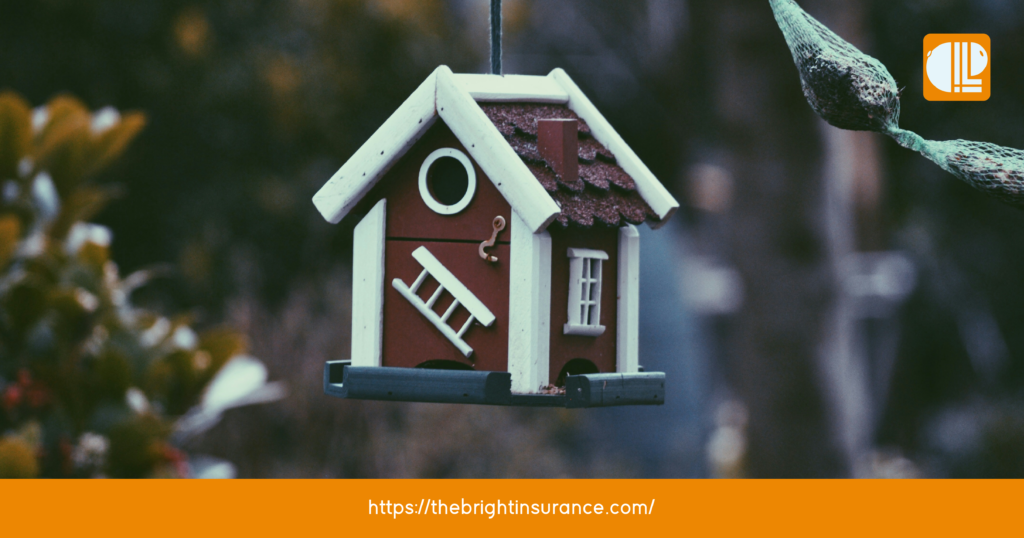
Homeowners insurance provides coverage for your home in many events including fire damage. It’s important to understand what your policy covers and what it doesn’t. The specifics can vary depending on the insurance company and the policy you choose.
When you buy homeowners insurance, you’re entering into a contract with an insurance company. In exchange for paying a premium, the insurance company agrees to provide financial protection if specified risks, like fire damage, occur. This protection covers not just your physical dwelling but also your personal belongings and liability.
Most homeowners insurance policies include coverage for fire damage because fires can cause significant destruction and financial loss. However, it’s essential to review your policy carefully to understand the extent of coverage provided. Some policies might have specific exclusions or limitations, such as for wildfires or arson. Additionally, coverage limits and deductibles can vary, so choose a policy that aligns with your needs and budget.
You might like: Homeowners Insurance: What It Covers, Why It Matters, and Choosing the Right Policy
How Does Homeowners Insurance Cover Fire Damage?
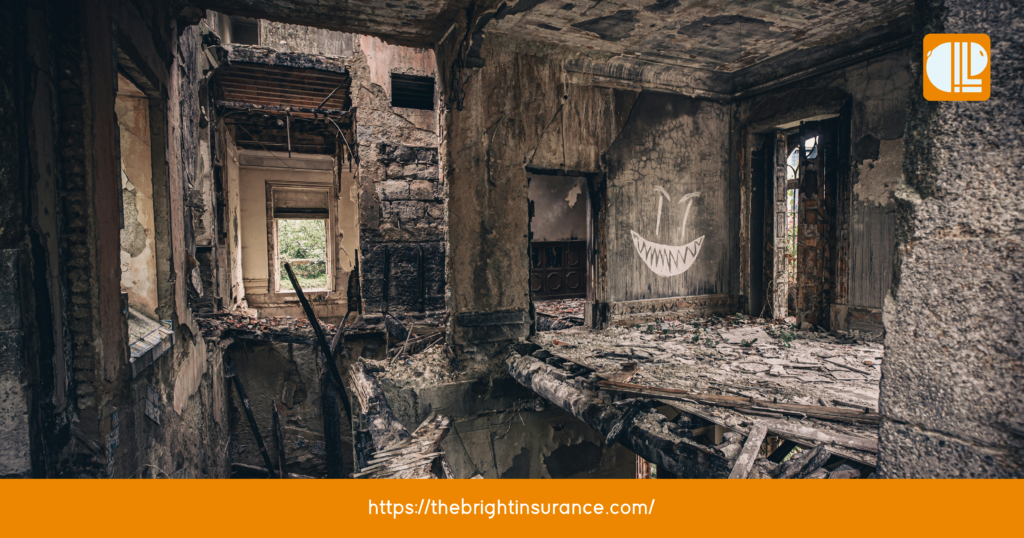
When fire damage occurs, homeowners insurance typically covers the cost of repairing or rebuilding your home, replacing damaged belongings, and providing temporary housing if needed. However, coverage limits, deductibles, and other factors must be considered when selecting the right insurance policy.
In the unfortunate event of a fire, your homeowners insurance can help you recover financially by providing funds to repair or rebuild your home. This coverage includes the cost of materials, labor, and any necessary permits or inspections. Depending on the extent of the damage, the insurance company may also cover additional expenses, such as debris removal or architectural fees.
Additionally, homeowners insurance can help replace your damaged belongings. Whether it’s furniture, appliances, clothing, or electronics, the insurance company will typically reimburse you for the cost of replacing these items, up to your policy’s limits. Keeping an inventory of your belongings and their estimated value is important to ensure you receive adequate compensation.
If fire damage makes your home uninhabitable, homeowners insurance can cover temporary living expenses. This includes renting a temporary residence, meals, and other necessary expenses while your home is being repaired or rebuilt. The insurance company will typically reimburse these expenses up to a specified limit and for a limited time.
It’s worth noting that homeowners insurance policies may have certain conditions or requirements to qualify for coverage in case of fire damage. For example, your policy might require you to have smoke detectors installed and maintained or take preventive measures to reduce fire risk. Familiarize yourself with these requirements and comply with them to ensure your coverage remains valid.
Factors to Consider When Choosing Homeowners Insurance for Fire Damage

Choosing the right homeowners insurance policy for fire damage requires careful consideration. Here are some essential factors to keep in mind:
Coverage Limits
When protecting your home and belongings from fire damage, ensure your insurance policy offers adequate coverage limits. Review the limits for dwelling coverage, personal property coverage, and additional living expenses. Consider the value of your home and possessions and adjust the coverage limits accordingly. It’s better to have more coverage than you need rather than being underinsured in a fire.
Imagine the aftermath of a fire, where your home and everything inside it is reduced to ashes. The cost of rebuilding, replacing your belongings, and finding temporary accommodation can be overwhelming. By carefully examining the coverage limits, you can have peace of mind knowing that you’re adequately protected financially.
Deductibles
Another important factor to consider when selecting a homeowners insurance policy for fire damage is the deductible amount. The deductible is the amount you’re responsible for paying out of pocket before the insurance coverage kicks in. It’s essential to balance the deductible and premium costs.
While a higher deductible may result in lower premium costs, ensure you have enough savings to cover the deductible in case of a fire-related claim. Consider your financial situation and weigh the potential savings against the risk of having to pay a large deductible. By finding the right balance, you can protect your finances while still enjoying affordable premiums.
Customer Service
When it comes to homeowners insurance, the level of customer service provided by the insurance company is crucial. Dealing with a fire-related claim can be stressful and emotional, and having a supportive and responsive insurance company makes a big difference.
Research and read reviews about different insurance companies. Look for positive feedback regarding their claims handling process, responsiveness to customer inquiries, and overall customer satisfaction. A company that prioritizes excellent customer service will ensure a smooth insurance experience, making it easier for you to navigate the aftermath of a fire and recover from the damage.
How to File a Fire Damage Claim with Your Homeowners Insurance?
When disaster strikes and fire damages your home, knowing how to file a homeowners insurance claim is crucial. Follow these step-by-step instructions to navigate the claims process smoothly:
Step-by-Step Guide to Filing a Claim
1.Contact your insurance company

Immediately report the fire and start the claims process. As soon as the fire is out and your family is safe, contact your insurance company. It’s crucial to report the fire quickly to initiate the claims process. Most insurance companies have a 24/7 claims hotline that you can call to report the incident. Have your policy number and relevant information handy when making the call.
2. Provide necessary documentation

Include photos, videos, and a detailed inventory of damaged or destroyed items. After reporting the fire, your insurance company will likely ask for documentation of the damages. This can include photos, videos, and a detailed inventory of the damaged or destroyed items. Be as thorough as possible when documenting the damages to ensure you receive proper compensation.
3. Work closely with your insurance adjuster

Assess the extent of the fire damage and determine the coverage provided by your policy. Once you’ve provided the necessary documentation, your insurance company will assign an adjuster to assess the fire damage. The adjuster will visit your property to inspect the damages and determine the coverage your policy provides. Work closely with the adjuster and provide any additional information or documentation they may request.
4. Follow any additional steps or requirements
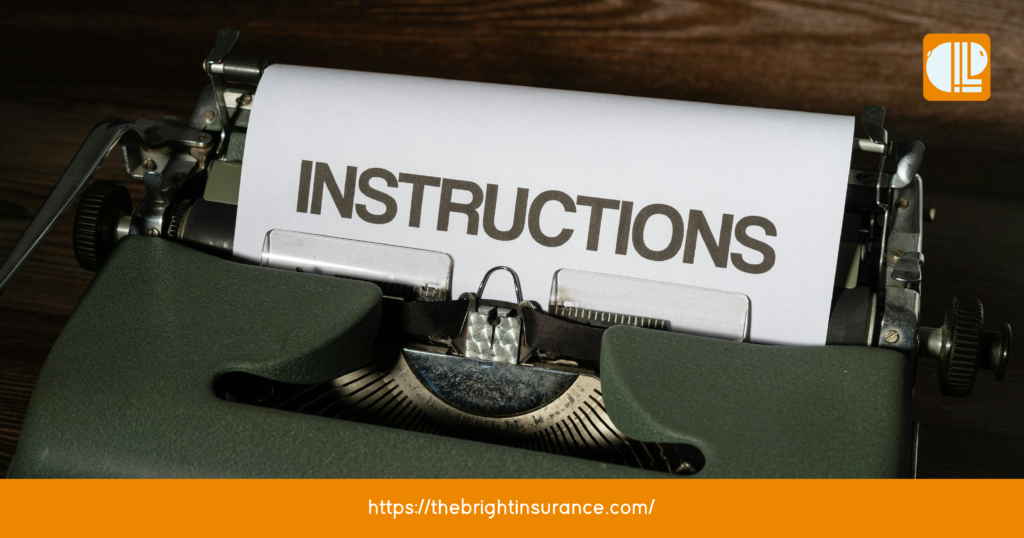
Throughout the claims process, your insurance company might have additional steps or requirements you need to follow. This could include providing more documentation, obtaining repair estimates, or finding temporary housing if your home is uninhabitable. Carefully review any instructions provided by your insurance company and comply with them to ensure a successful claim process.
What to Do If Your Claim is Denied?
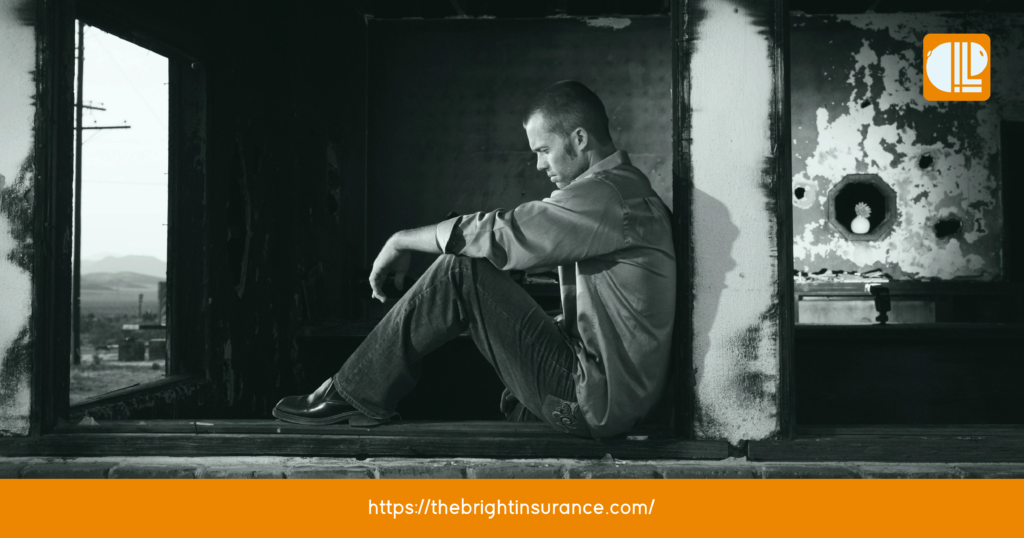
If your claim is denied, don’t panic. Review the denial letter carefully and gather any additional information or documentation that might support your case. Consider appealing the decision or seeking legal advice if necessary.
Unfortunately, some insurance claims get denied. If you receive a denial letter, review it carefully to understand why. Sometimes, the denial may be due to missing or incomplete information. In such cases, gather any additional information or documentation that might support your case and submit it to your insurance company for reconsideration. If your claim is still denied after providing additional information, consider appealing the decision or seeking legal advice to explore your options.
Dealing with a fire damage claim can be challenging, but being proactive and following the right steps increases the likelihood of a successful claim. Remember to stay organized, document everything thoroughly, and communicate effectively with your insurance company throughout the process.
Tips to Prevent Fire Damage at Home
While having the right homeowners insurance coverage is crucial, taking preventive measures to reduce the risk of fire damage is equally important. Implement these tips to keep your home and loved ones safe:
Regular Maintenance and Inspection
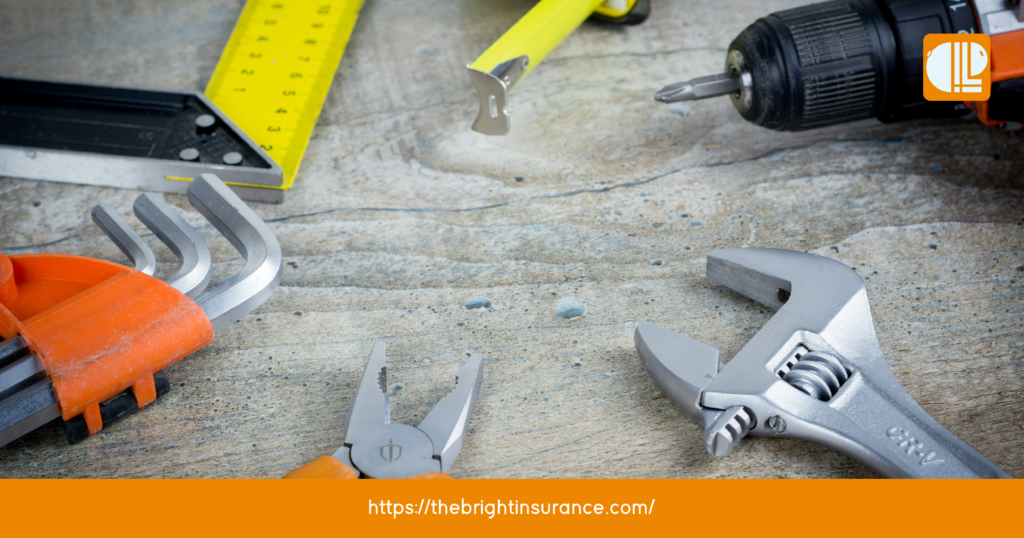
One of the most effective ways to prevent fire damage is by conducting regular maintenance and inspections around your home. Start by ensuring your home’s electrical system is up to code and regularly inspected by a certified professional.
Faulty wiring is a common cause of house fires. Over time, electrical systems can deteriorate, increasing the risk of a fire. By having your electrical system inspected and maintained by a professional, you can identify and address any potential hazards before they become a problem.
Additionally, check for other potential fire hazards in your home, such as heating systems, chimneys, and appliances. Regularly clean and maintain these systems to reduce the risk of a fire. For example, have your heating system serviced annually to ensure it’s functioning properly and not at risk of overheating or malfunctioning.
Fire Safety Equipment and Measures
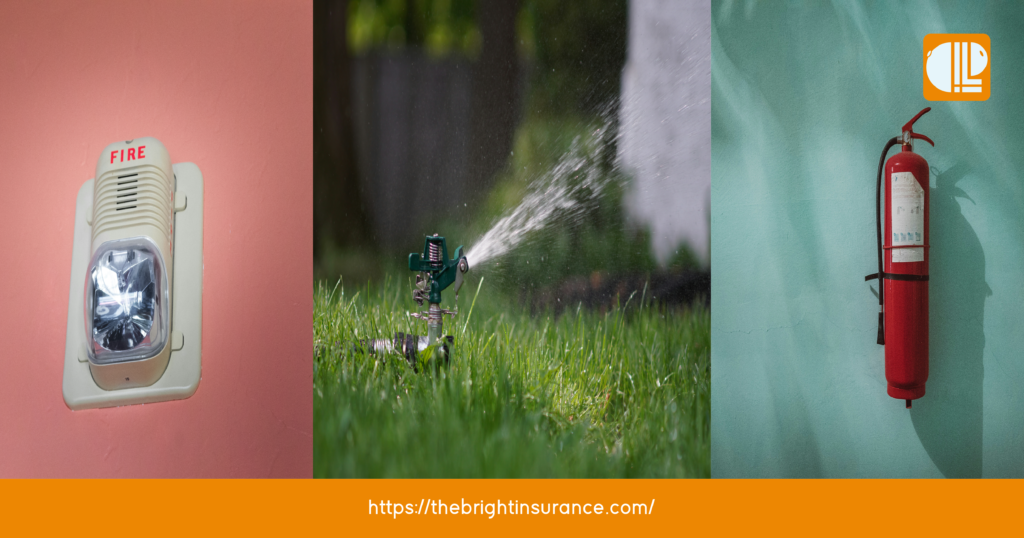
Invest in fire safety equipment and ensure everyone in your household knows how to use it. Install smoke detectors in each room and test them regularly to ensure they’re working correctly. Smoke detectors are your first line of defense in detecting a fire and alerting your family to evacuate.
Keep a fire extinguisher in the kitchen, where most home fires start. Ensure everyone in your household knows how to use the fire extinguisher in case of an emergency. Additionally, consider installing a fire sprinkler system in your home. While this may seem like an investment, it can save lives and significantly reduce fire damage.
Develop and practice a fire escape plan with your family. Ensure everyone knows the safest routes to exit the house and designate a meeting spot outside where everyone can gather after evacuating. Conduct regular fire drills to ensure everyone is familiar with the plan and can act quickly in a real emergency.
Safe Cooking Practices
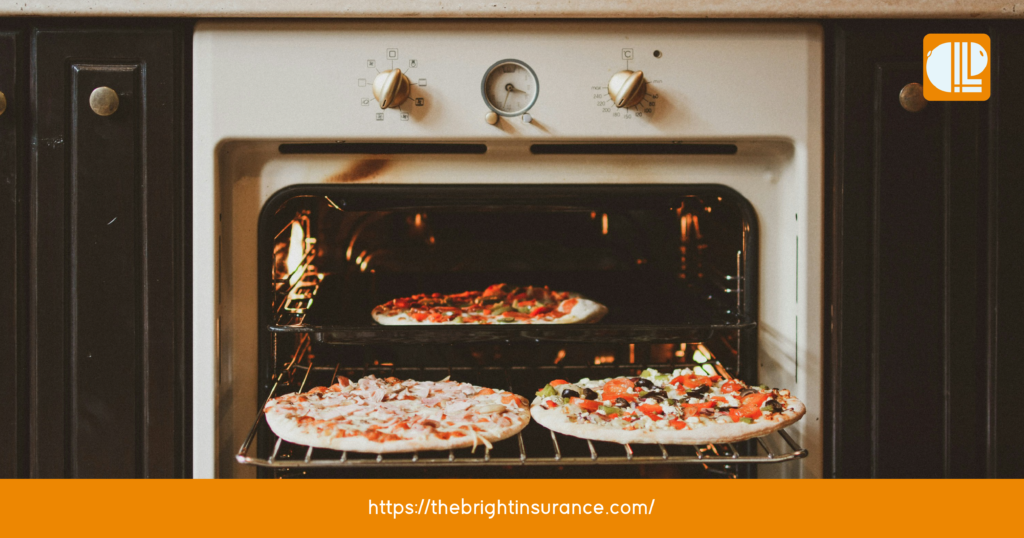
The kitchen is a common area where fires start. To reduce the risk of fire, practice safe cooking habits. Never leave cooking unattended, especially when using the stove or oven. Keep flammable items like paper towels, dishcloths, and curtains away from the cooking area. Avoid wearing loose clothing while cooking, as it can easily catch fire.
Keep a fire extinguisher within reach in the kitchen and know how to use it in case of a cooking-related fire. If a fire starts on the stove, use a lid to cover the flames and smother them. Never use water to extinguish a grease fire, as it can cause the flames to spread. Instead, use a fire extinguisher or baking soda to put out the fire.
Candle Safety
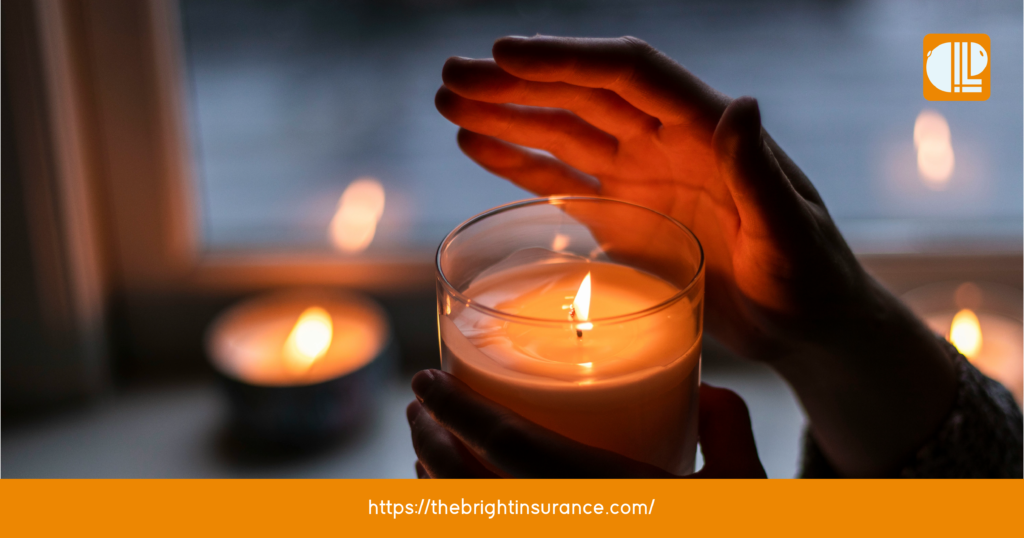
Candles add ambiance to your home, but they can also pose a fire hazard if not used safely. Always place candles on a stable surface and keep them away from flammable materials like curtains, bedding, and paper. Never leave candles unattended, especially in a room where children or pets are present.
Consider using battery-operated flameless candles as a safer alternative. They provide the same warm glow without the fire risk. If you use traditional candles, extinguish them before leaving the room or going to bed.
Heating Safety
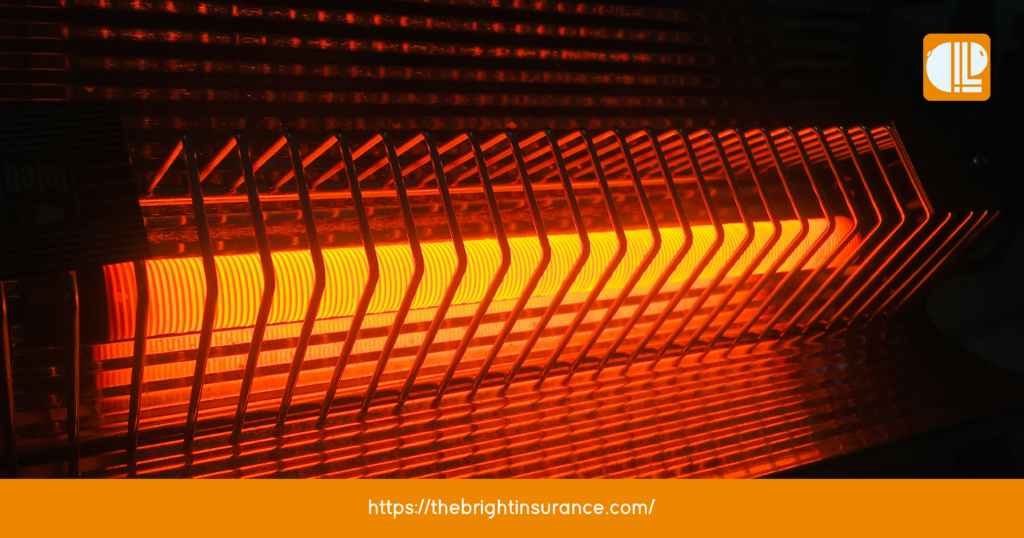
During the colder months, heating equipment like space heaters and fireplaces are common sources of warmth. However, they can also be fire hazards if not used correctly. When using space heaters, place them on a flat, non-flammable surface and keep them at least three feet away from anything that can catch fire, such as curtains, furniture, and bedding.
Never use the oven or stove to heat your home, as this can cause a fire. If you use a fireplace, have it inspected and cleaned regularly to prevent creosote buildup, which can lead to chimney fires. Use a fireplace screen to prevent sparks from escaping and keep flammable materials away from the hearth.
Conclusion
Protecting your home from fire damage is a key responsibility as a homeowner. Ensuring you have the right homeowners insurance policy in place is critical to safeguard your most valuable asset. Consider the coverage limits, deductibles, and the insurance company’s customer service when choosing a policy. Additionally, taking preventive measures to reduce the risk of fire damage, such as regular maintenance, installing fire safety equipment, and practicing safe habits, can go a long way in keeping your home and loved ones safe.
Remember, the aftermath of a fire can be overwhelming, but with the right insurance and preparedness, you can navigate the challenges and rebuild your life. Don’t wait until it’s too late – take action today to protect your home and family from the devastating effects of fire.
Also read: What Are the Hidden Costs of Homeownership? A Comprehensive Guide
Frequently Asked Questions
1. What are the top homeowners insurance companies that cover fire damage?
The top homeowners insurance companies for fire damage include Allstate Insurance, CHUBB Insurance, and USAA Insurance. These companies are known for their comprehensive coverage and excellent customer service.
2. What does homeowners insurance typically cover in terms of fire damage?
Homeowners insurance typically covers the cost of repairing or rebuilding your home and replacing your personal belongings after fire damage. It may also cover additional living expenses if your home is uninhabitable.
3. Are there any specific requirements for fire damage coverage in homeowners insurance?
Some policies may have specific requirements, such as having smoke detectors installed or meeting certain safety standards, to qualify for fire damage coverage.
4. What factors should I consider when choosing homeowners insurance that covers fire damage?
When choosing homeowners insurance for fire damage, consider the coverage limits, deductibles, premiums, the insurance company’s reputation, customer reviews, and any additional benefits.
5. Does homeowners insurance cover fire damage caused by wildfires?
Most homeowners insurance policies cover fire damage from wildfires, but it’s important to check your policy for any exclusions or limitations.
6. What should I do if my home is damaged by fire?
If your home is damaged by fire, ensure your safety, contact the fire department, report the fire to your insurance company, document the damage, and cooperate with the insurance investigation.
7. How can I reduce the risk of fire damage in my home?
Reduce the risk of fire damage by conducting regular maintenance, installing fire safety equipment, practicing safe cooking habits, and using candles and heating equipment safely.
8. What should I do if my fire damage claim is denied?
If your fire damage claim is denied, review the denial letter carefully, gather additional information or documentation, and consider appealing the decision or seeking legal advice.
9. How long does it take to process a fire damage claim?
The time it takes to process a fire damage claim can vary depending on the extent of the damage and the insurance company’s procedures. It can take anywhere from a few weeks to several months.
10. Can I increase my homeowners insurance coverage for fire damage?
Yes, you can increase your homeowners insurance coverage for fire damage by adjusting the coverage limits or purchasing additional endorsements or riders for specific items or risks.








Obrigado pelo artigo auspicioso Na verdade, foi uma conta de diversão, parece avançado para mais agradável de sua parte. A propósito, como poderíamos nos comunicar
Muito obrigado! Seu feedback é muito valioso. Você é sempre bem-vindo para entrar em contato conosco através de nossa página de contato.
Ny weekly I truly appreciate your technique of writing a blog. I added it to my bookmark site list and will
Thank you so much! Your feedback is much valuable.
Techno rozen I truly appreciate your technique of writing a blog. I added it to my bookmark site list and will
This article offers valuable insights into the importance of homeowners insurance, especially in protecting against fire losses. I appreciated the breakdown of what policies typically cover. Could you provide more information on what steps homeowners should take to ensure they have adequate coverage for fire-related incidents? Thanks for the helpful guidance!
Thank you so much! Your feedback is much valuable.
Truly appreciate your technique of writing!!!!
Thank you so much! Your feedback is much valuable.
Its like you read my mind You appear to know so much about this like you wrote the book in it or something I think that you can do with a few pics to drive the message home a little bit but instead of that this is excellent blog A fantastic read Ill certainly be back
Thank you so much! Your feedback is much valuable.
Somebody essentially lend a hand to make significantly articles Id state That is the very first time I frequented your website page and up to now I surprised with the research you made to make this actual submit amazing Wonderful task
Thank you so much! Your feedback is much valuable.
Your blog is a testament to your expertise and dedication to your craft. I’m constantly impressed by the depth of your knowledge and the clarity of your explanations. Keep up the amazing work!
I’m not that much of a online reader to be honest but your blogs really nice, keep it up! I’ll go ahead and bookmark your site to come back later on. All the best
you have a great blog here! would you like to make some invite posts on my blog?